A Guide to Caring for Your Elderly Cat
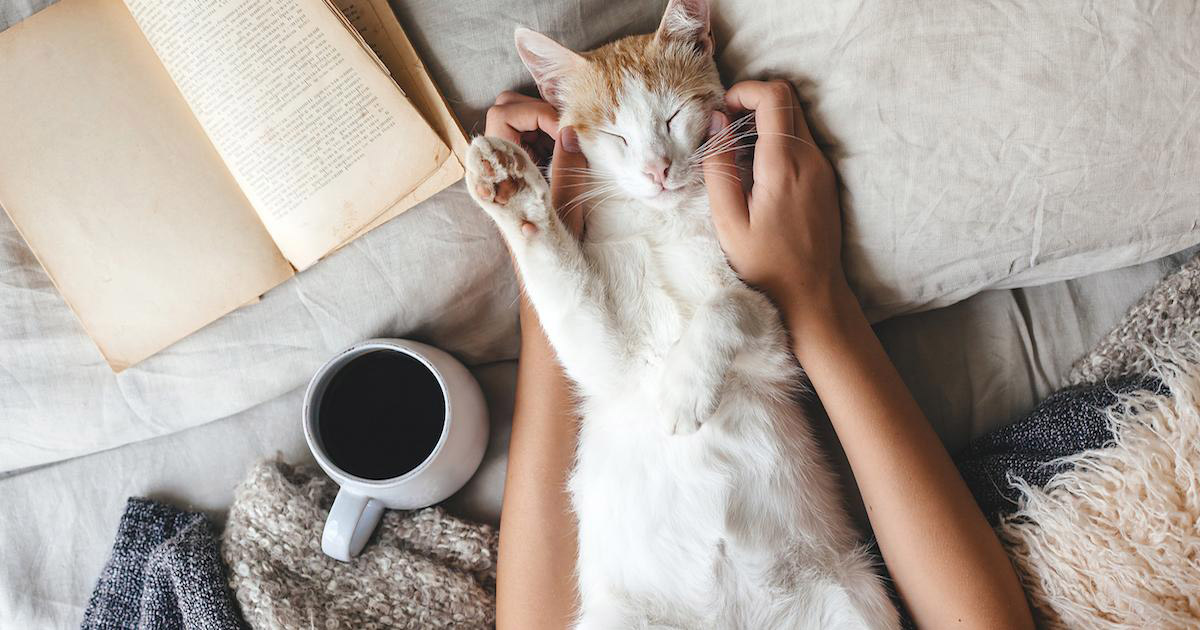
There’s no denying that senior cats deserve the world. With unwavering devotion, they’ve given us all of their love and steadfastly provided us with comfort and companionship throughout the years. To pay them back and show our heartfelt appreciation, there’s only one thing to do: take care of them to our best abilities to ensure that they live out their golden years happily and healthily!
However, elderly cats have a unique set health needs that result from ageing — a gradual, irreversible, and inevitable process of the natural decline of a body’s physical condition, immune responses, organ function, and sensory and cognitive abilities. To know more about how to properly care for elderly felines, we must first understand the ageing process.
The effects of ageing & age-related diseases
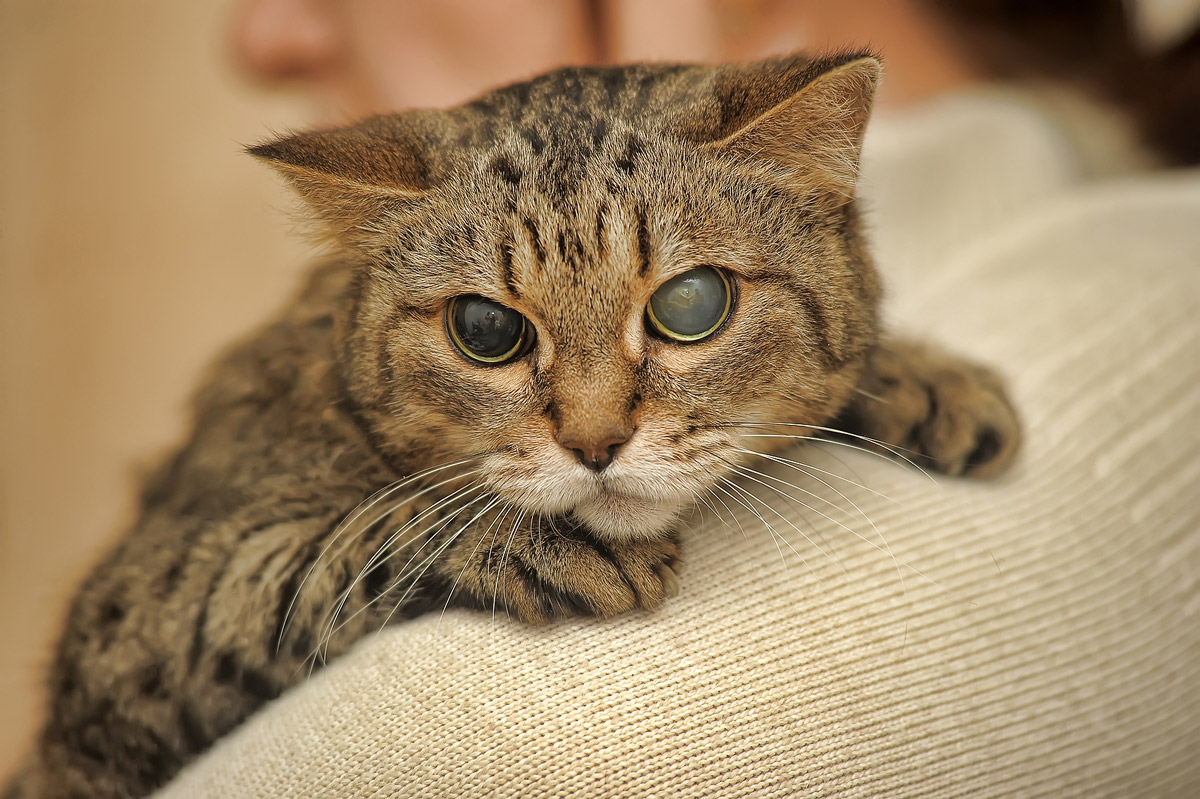
As your pet cat ages, its body’s ability to synchronise the functions of its organ system diminishes. The age-related dysregulation of its metabolism also results in the excessive production of free radicals (oxidative stress), which causes damage to cells and the immune system.
These result in a loss of function, physical changes, behavioural changes, and sometimes even mental changes. To read more about the signs of ageing in cats, head here .
Ageing is also associated with age-related diseases. While growing old in itself is not a disease, a cat’s senior years is the life stage when chronic diseases appear! Often, a senior cat will develop more than just one chronic disease too.
Some of the most common age-related diseases in cats are chronic renal disease (CKD), hyperthyroidism, diabetes mellitus, osteoarthritis, and feline cognitive dysfunction. Undiagnosed chronic kidney disease, diabetes, and hyperthyroidism all eventually lead to death, while osteoarthritis is a painful and crippling disease. As for cognitive dysfunction (dementia), though it does not cause death, it will progressively reduce your cat’s quality of life to the point where some owners may decide on euthanasia.
However, while these diseases are progressive and irreversible, they are treatable! As such, never assume that every physical and behavioral change that you observe in your cat is entirely due to ageing — they could sometimes be early signs of a disease, and wrongly attributing observed changes to “just getting old” can lead to months or years of unnecessary suffering or pain for your precious feline.
Knowing when your cat becomes a ‘senior’
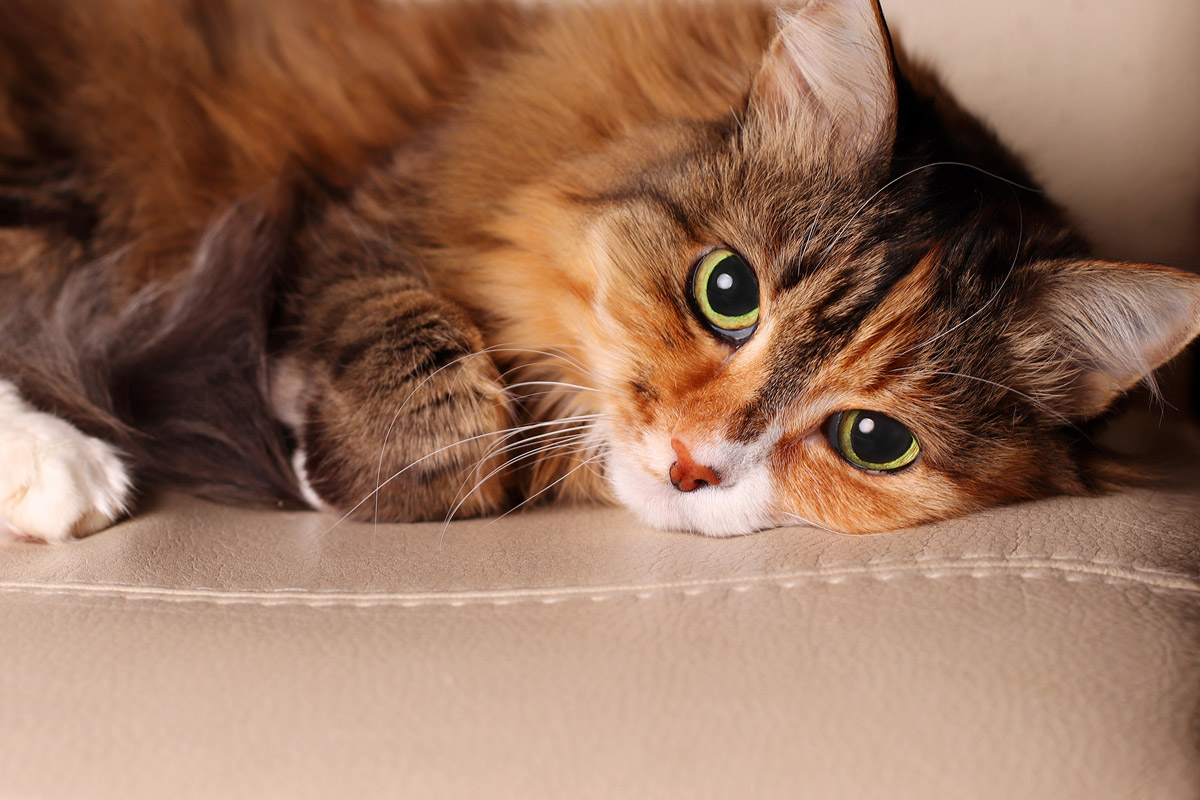
Several factors influence the rate at which a cat ages, including its genes, nutrition, and environmental factors. No two cats will age physiologically at the same rate, and the first signs of ageing can appear at any age and in no particular order.
Some cats may have more pronounced changes than others, so it’s very possible for a 14-year-old cat to look like an 8-year-old cat and vice versa! However, according to Cornell University College of Veterinary Medicine, many cats start experiencing age-related physical changes between 7 and 10 years of age, and most do so by the time they are 12.
To know for sure if your cat is entering the senior stage of its life, bring your pet for a medical checkup and consult your veterinarian! It can be very easy for cat owners to miss the tell-tale signs of ageing because they are very subtle and gradual, and it doesn’t help that cats are hard-wired to hide signs that reveal potential weakness or movement difficulties.
Once you know that your pet has signs of ageing, you can begin incorporating these measures into your pet care routine to improve its quality of life:
1. Take preventive measures
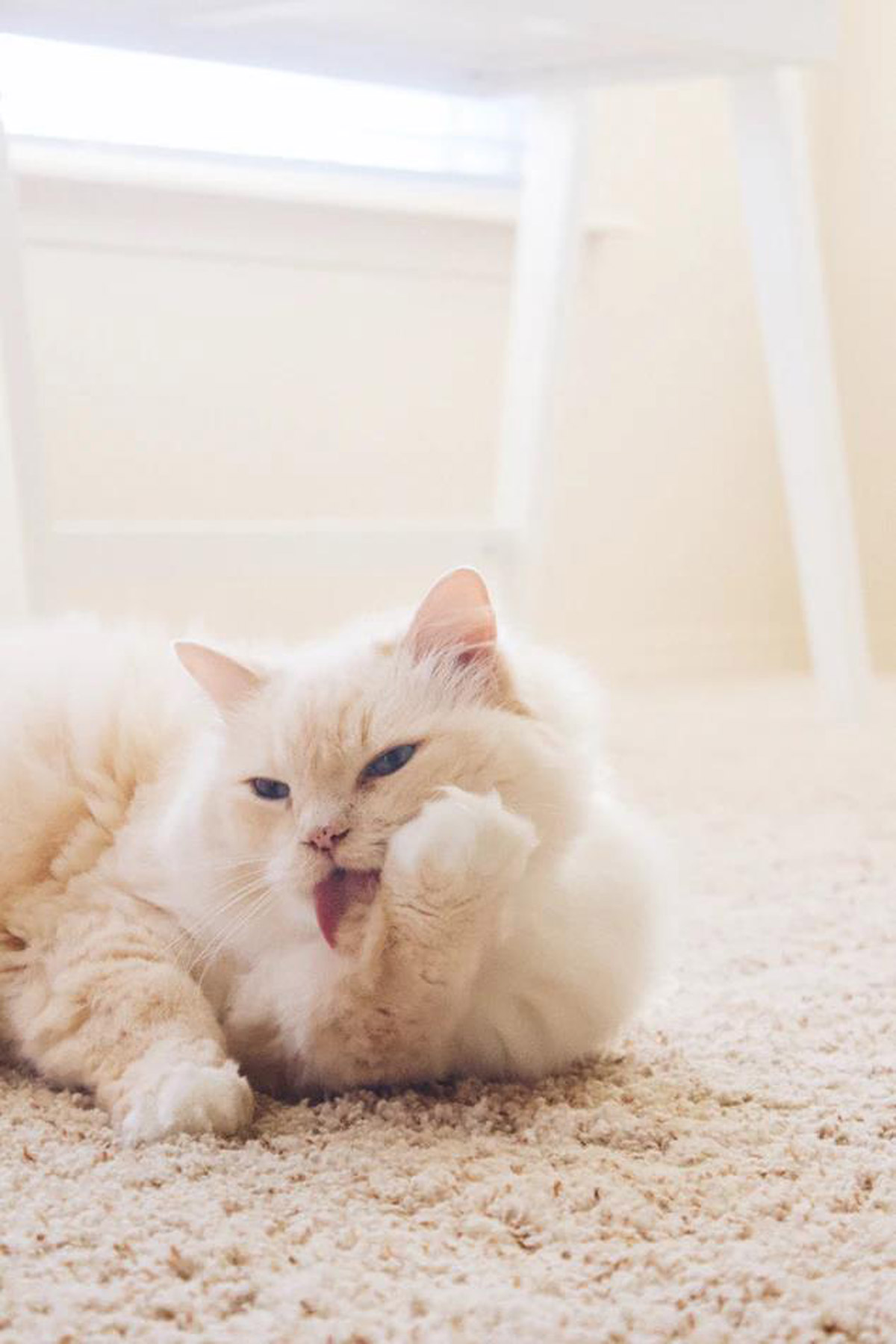
Source: Izabelle Acheson on Unsplash
We cannot stress this enough! Preventive measures include vaccinations, protection against external and internal parasites (heartworms, fleas, and intestinal parasites), sterilisation, and grooming . Do not skip out on these as they are necessary to ensure healthy and happy years for your elderly pet.
Regular vaccinations will protect your pet from the risk of death or permanent organ damage, and sterilisation can help to prevent uterine infections known as pyometra, reduce the risk of testicular cancers, and more. For a more in-depth explanation on the health benefits of vaccinations and sterilisation, read our other article here later!
Grooming as a form of preventive care might come as a surprise to some owners as well since cats are well-known to be sticklers of personal hygiene. However, as cats age, they lose flexibility. This loss of flexibility will make self-grooming increasingly difficult for your cat, which can adversely impact its health and well-being.
Faecal and urine stains can cause skin burns and infections, dirty ears and eye discharge put your pet at risk of ear and eye infections, and overgrown nails make walking difficult and painful. Make sure that your pet’s fur is clean and free from tangles, ears and eyes are cleaned regularly, nails and claws are kept trimmed, and oral hygiene maintained with frequent dental check-ups!
2. Know your pet’s normal behaviour well
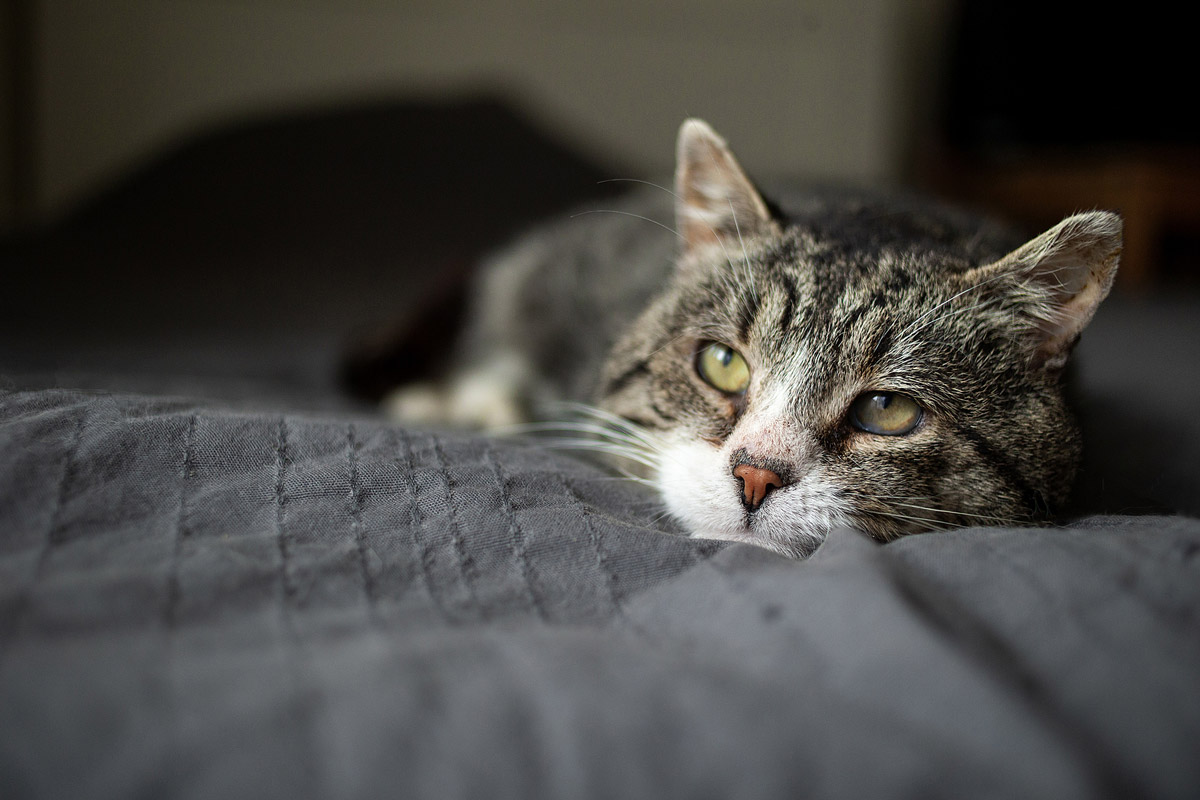
To detect physical and behavioural changes in your cat better, it is important to develop a good grasp of what is considered ‘normal behaviour’ for your pet. Know its daily routine and habits like the back of your hand, be observant and vigilant, and learn how to distinguish the signs of ageing from those of age-related diseases! If you’re ever unsure, do not hesitate to consult your vet and find out if a visit to the clinic is needed.
3. Encourage physical & mental stimulation
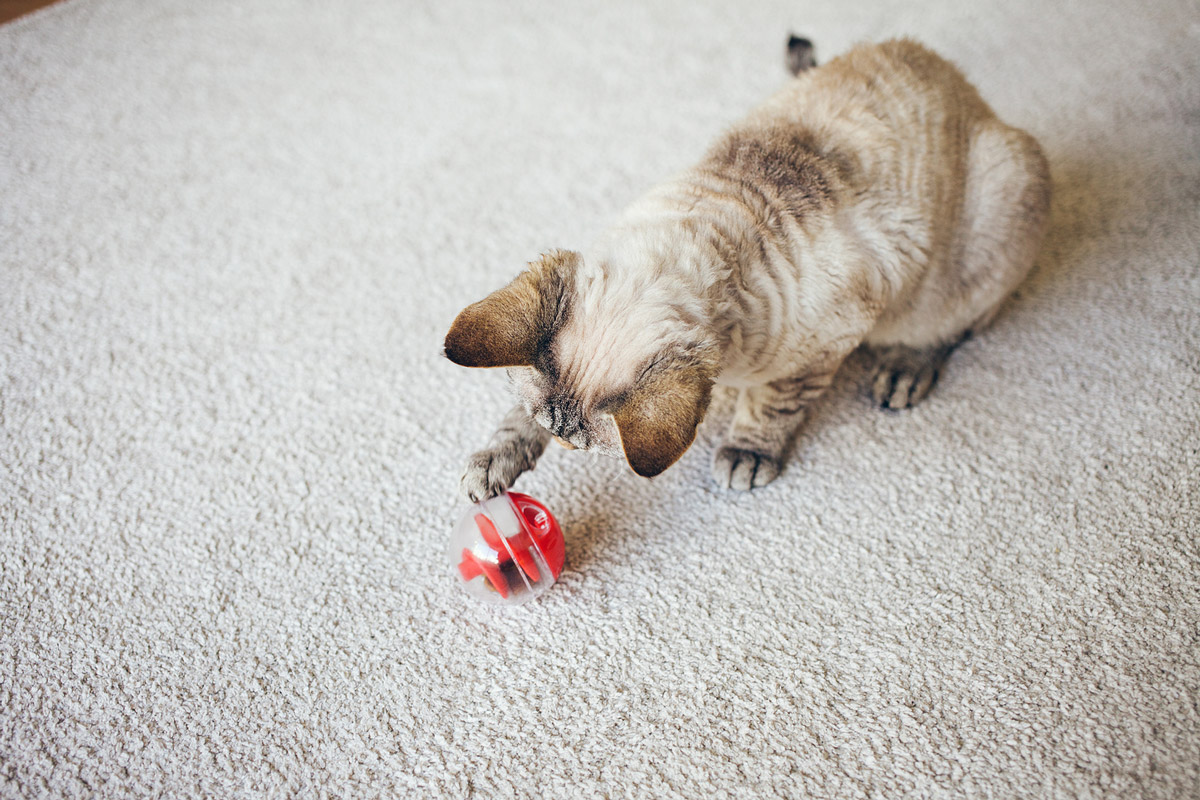
Just because your pet is getting old does not mean that its need for regular exercise and mental stimulation is reduced. On the contrary, your elderly pet will need to stay as active as possible with moderate-levels of exercise to boost their physical health and keep their joints flexible, and a great deal of entertainment to get their brain juices flowing. This will keep them happy, healthy, and alert. Think food puzzles, cardboard boxes, kick toys, and mazes!
4. Provide environmental support at home
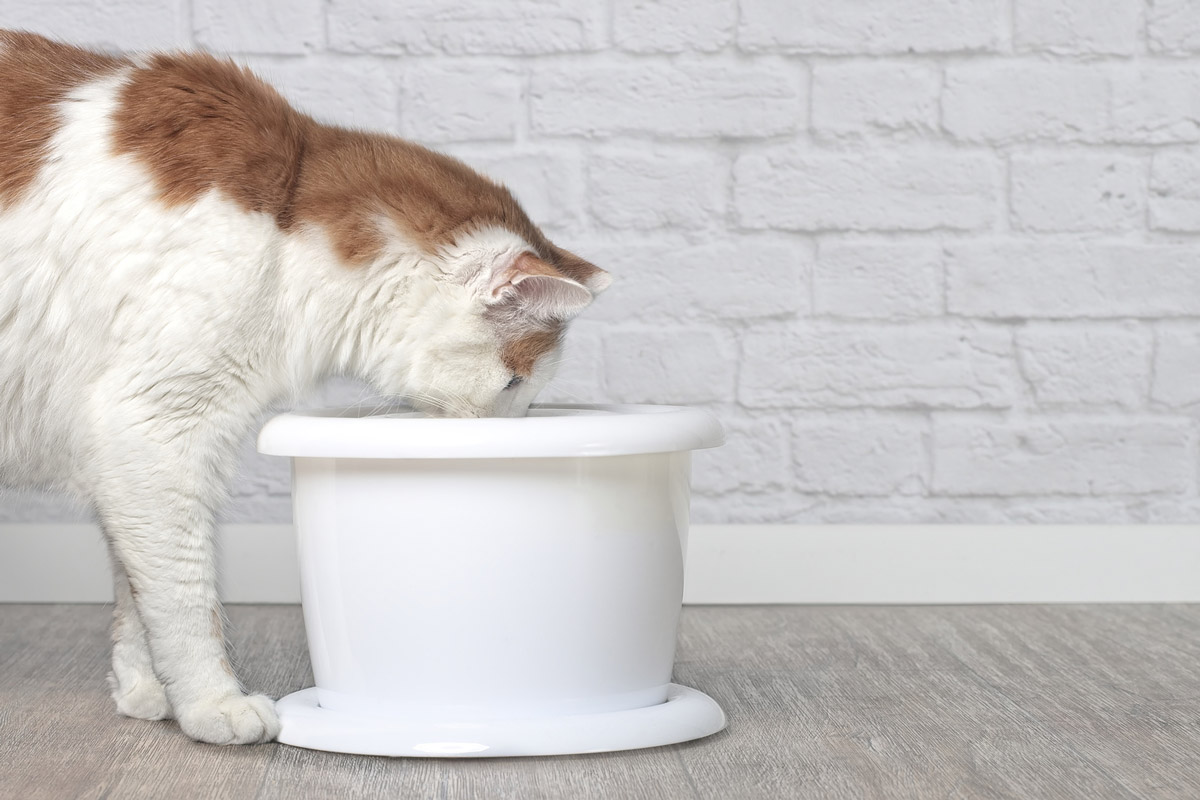
Depending on your cat’s health condition, slight improvements to your house will be required to make its surroundings safer and more convenient for it to move around. Take note that this does not mean making major changes to its environment — senior cats will not take well to that.
Rather, if your cat has arthritis or difficulty walking, you may add pet-friendly ramps around the house, provide non-slip surfaces by placing more rugs around, replace its bed with an orthopaedic one, and lower the sides of the litter box to allow easier entry.
You can also purchase an anti-collision ring and install night lights and safety barriers if your pet has diminishing eyesight due to conditions such as cataracts. Fresh drinking water must also be accessible at several locations, and because senior cats have reduced temperature-regulating mechanisms, cat owners must protect them from temperature fluctuations.
5. Adjust your pet’s diet accordingly
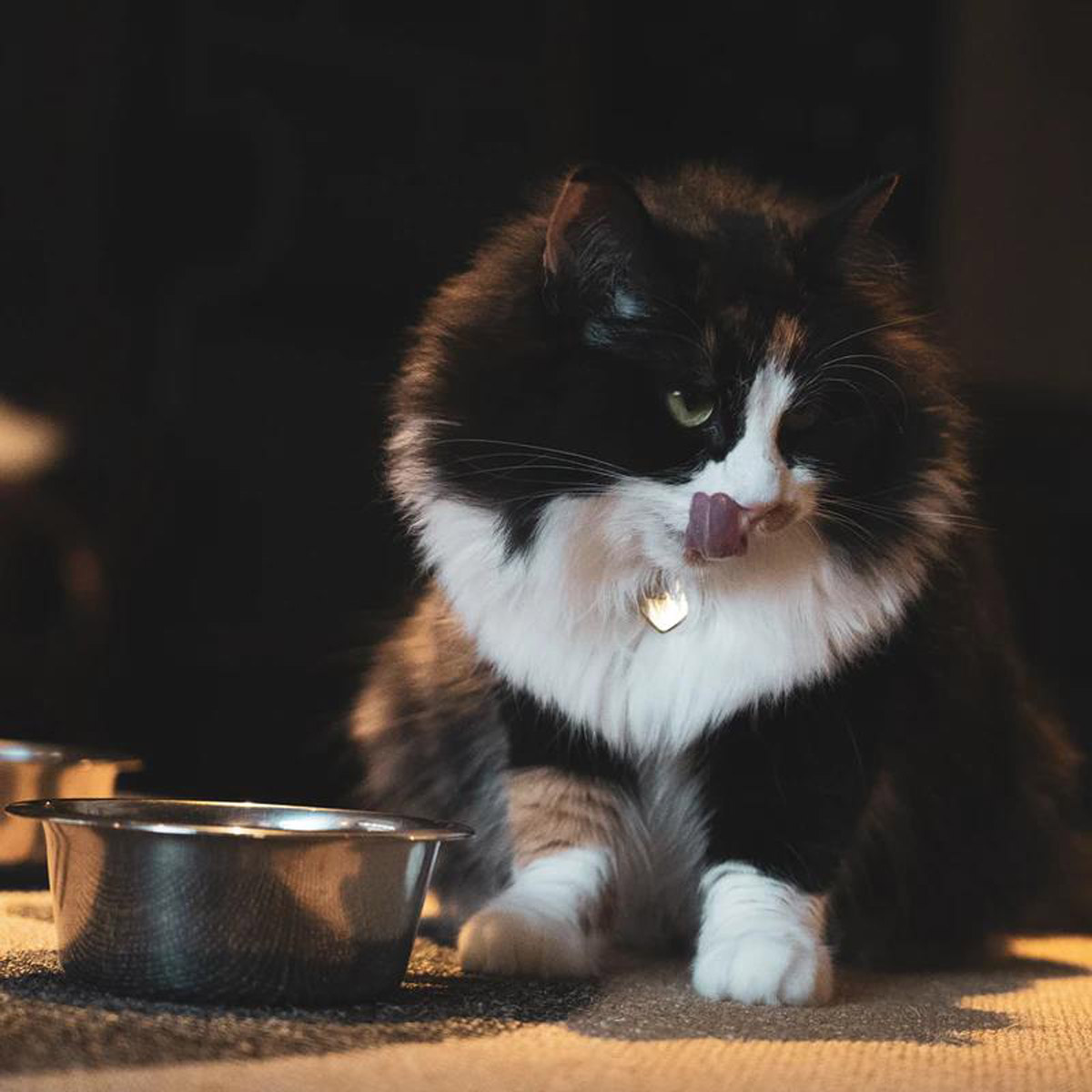
Source: Rasmus Gerdin on Unsplash
Cats need different diets at different stages of their lives. When your pet becomes a ‘senior’, you will first need to pay close attention to managing your feline’s weight and keeping it within an ideal range.
Obesity is very serious and must be avoided as it is a risk factor for chronic illness such as heart, respiratory, and skin diseases, as well as osteoarthritis — the leading cause of lameness in cats. Usually, this means feeding smaller quantities of their regular meals, switching to a food with a lower energy density (reduced fat or fibre), or introducing foraging devices such as meal-dispensing feeders and food-filled toys because as cats get older, their metabolic rate and activity decrease.
On the flip side, there may be cats that eat less because of chewing difficulties or poor appetite stemming from health issues, or eat as per normal, but somehow continuously lose muscle mass (this is also known as Sarcopenia).
All these ultimately mean one thing — monitor your pet’s weight and eating habits and work closely with your vet for an accurate diagnosis, recommended calorie intake, and if necessary, a prescription diet (for managing chronic conditions such as renal disease). Your vet will be able to help you determine whether your cat is underweight, at an ideal weight, or obese by performing body condition scoring (BCS) and muscle condition scoring (MCS).
Cats are also obligate carnivores adapted to eat a protein-rich, carbohydrate-poor diet. Older cats need to be fed an increased quantity of high-quality protein from animal sources rather than grain-based sources, unless the cat has a condition requiring protein restriction, such as renal disease. Mark Peterson, a canine and feline endocrinologist, recommends feeding healthy senior cats at least 6-8g of high-quality animal protein/kg body weight per day!
Some finicky felines also tend to be less proactive in drinking water, so they should also be given a diet with high water content. Dietary supplements are also recommended as a way to further meet your pet’s health needs, such as Antinol, a lipid extract from New Zealand Green-Lipped Mussels which has been clinically proven to be 100 times more effective than the anti-inflammatory action of omega-3 fatty acids.
6. Schedule regular health check-ups
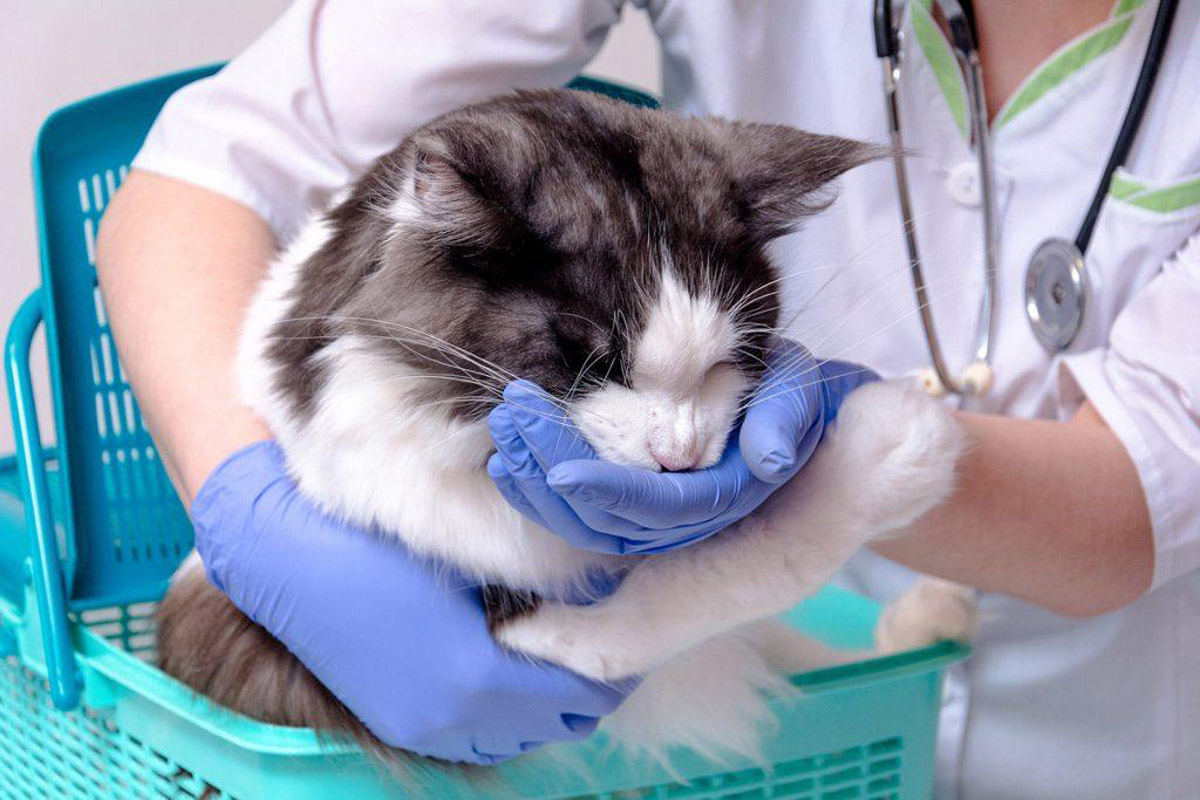
The signs of ageing are subtle and gradual, making them easily missed by many cat owners. By the time you notice that something is wrong with your cat, it may have already been going on for a much longer time than you think!
Schedule regular health check-ups every 6 months to increase the chances of detecting change and illnesses in your pet early. This will allow you to meet its needs as quickly as possible, which is especially important for senior cats because they are prone to medical conditions such as organ failure, heart disease, and other chronic illnesses associated with old age that can escalate suddenly.
These chronic diseases may have asymptomatic conditions or symptoms that are often mistaken by pet owners as a natural effect of ageing. With early detection, your vet can implement immediate treatment to slow down the progression of the disease, as well as identify and manage health risk factors. Early detection and management also opens up more treatment options and typically helps you save on medical bills in the long run!
If your pet is undergoing treatment, bringing it for check-ups diligently will also enable your vet to monitor the effectiveness of the treatment and adjust dosages or add new drugs, supplements, or therapies accordingly.
7. Work closely with your vet and the veterinary nurses
Make your vet and the clinic’s veterinary nurses your go-to source for all matters concerning your cat’s health! Vets have the knowledge and training to provide science-based medical information that will keep your pet healthy and certified ISFM Cat Friendly Clinics, in particular, require their staff to be up-to-date in their knowledge of all aspects of feline health and disease.
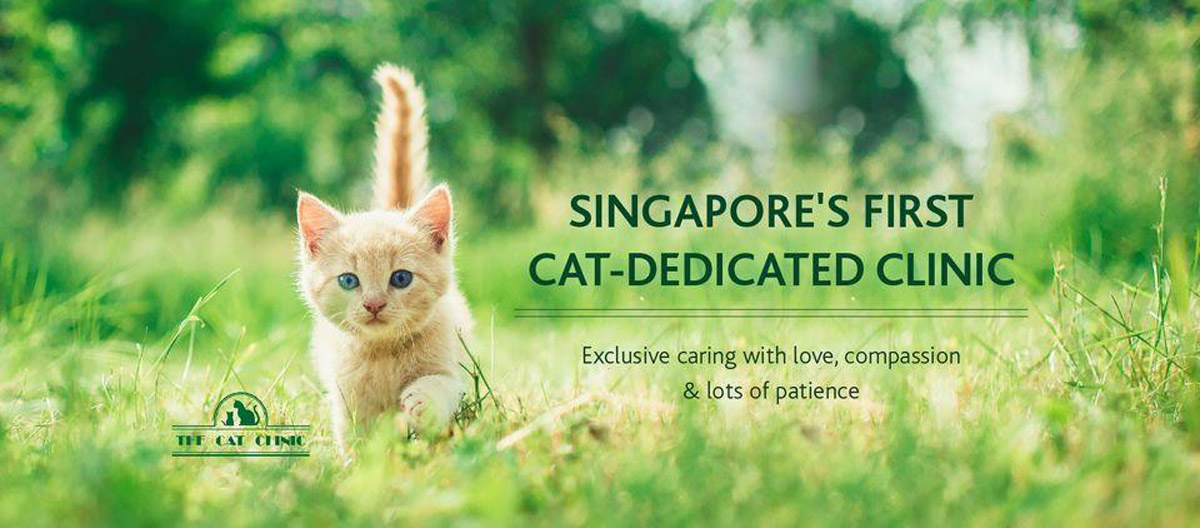
Source: The Cat Clinic
One such accredited Cat Friendly Clinic here in Singapore is The Cat Clinic, and here’s why else you might want to consider bringing your senior cat to a cat-dedicated clinic like theirs. It will ensure a less stressful experience for your elderly feline, provide you with reliable advice and accurate explanations, deliver the newest health care available, and carry veterinarian-approved cat care products that might not be readily available at an interspecies veterinary clinic.
The first-ever cat-dedicated clinic on our shores, The Cat Clinic is a branch of The Animal Clinic, which has been providing quality healthcare for pets since 1979.
The Cat Clinic
Address: Blk 109, Clementi Street 11, #01-33
Tel: 6873 0014 / 6873 0024
After-hours emergency: 6333 5550
Teleconsultations & telemedicine: https://animalclinicsg.smart.vet/
Website
Facebook
Instagram








